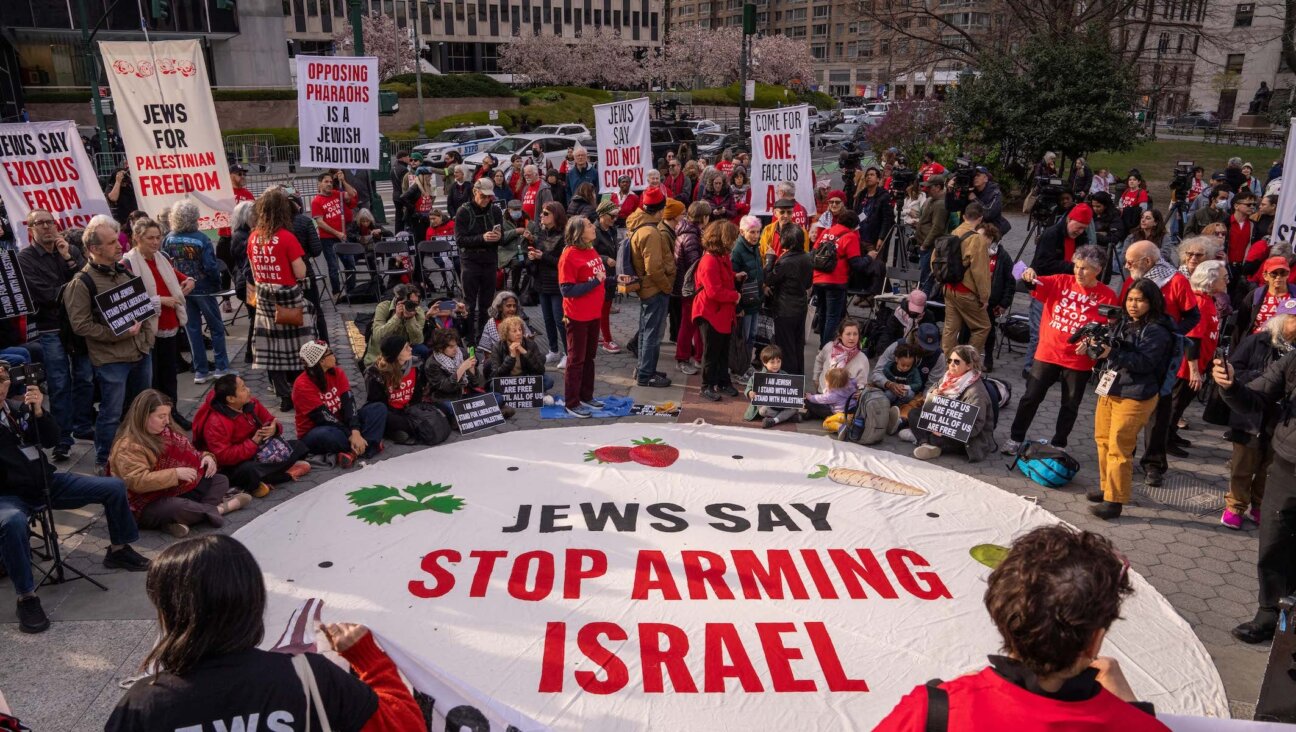Jewish leader in Ukraine stabbed by assailant shouting ‘antisemitic statements’

Graphic by Angelie Zaslavsky
This article originally appeared on Haaretz, and was reprinted here with permission.
The director of the Jewish community in a western Ukrainian town was stabbed in an apparent antisemitic attack, the United Jewish Community of Ukraine announced on its Telegram Channel on Thursday.
Igor Perelman, the director of the Jewish community of Ivano-Frankivsk in western Ukraine, was stabbed three times by an assailant while walking in the city’s center. The assailant was shouting “antisemitic statements in front of numerous witnesses,” the UJCU stated, calling on Ukrainian Jews to recite psalms for his recovery.
The Jewish communal leader’s wounds have been “sewn up” and he is currently recovering, the UJCU’s chief operating officer, Vitaliy Kamozin, told Haaretz. “There were antisemitic statements, but the motive is not yet clear,” he said, adding that police are investigating the matter.
Ever since Russia’s invasion of Ukraine began, both sides have compared their opponents to Nazis and accused them of committing genocide. The Kremlin and state-controlled media outlets have long claimed that Ukrainian Jews have been persecuted by Ukrainian nationalists, a claim derided by community members and leaders.
According to Ukrainian media reports, the Security Service of Ukraine (SBU) recently warned against Russian propaganda after discredited reports emerged of attacks against Jews in Zhytomyr.
Thursday’s attack comes a day after the Russian Defense Ministry claimed that Ukrainian forces were storing weapons in a synagogue in the central Ukrainian city of Uman, sparking harsh denunciations and denials from the local Jewish community.
Russian artillery and air strikes have destroyed or damaged multiple Jewish sites in Ukraine. On Saturday, they shelled the Drobytsky Yar memorial complex on the outskirts of Kharkiv, damaging a large menorah on the site where more than 15,000 Jews were murdered by the Nazis in December 1941.
This article originally appeared on Haaretz, and was reprinted here with permission.














